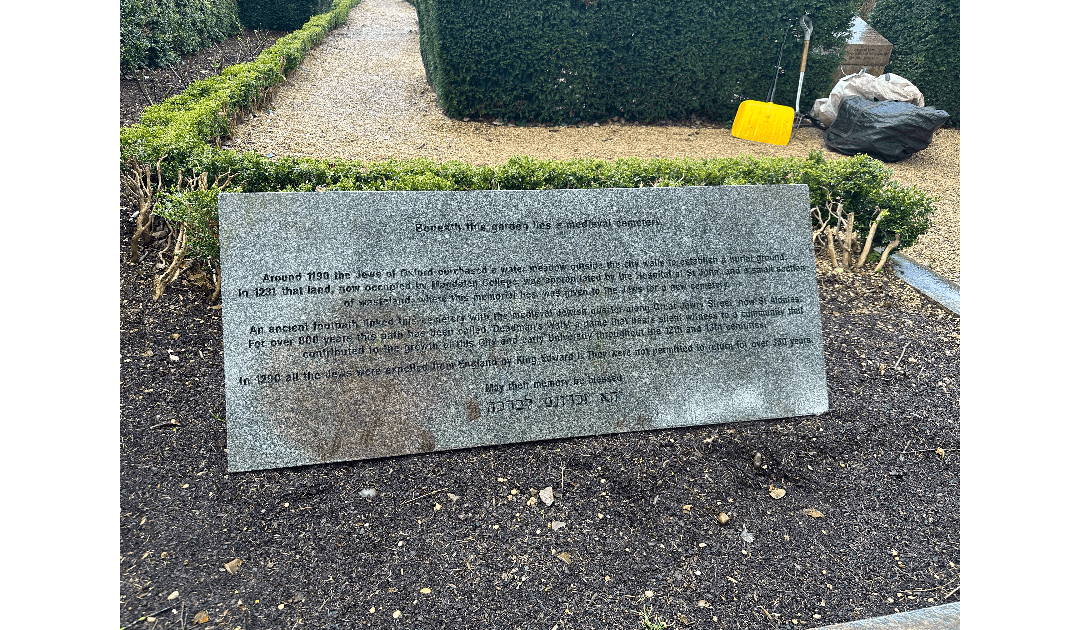We visited Oxford yesterday, for a Floreat Aula Legacy Society dinner at my old college, St Edmund Hall. Because we couldn’t check into our room until the afternoon, we visited the botanic garden. I’d never visited the botanical garden before. I suppose, as a student, you have too much else to do and worry about.
There was a memorial plaque near the entrance. It marks the site of a Jewish burial ground. Around 1190 the Jews of Oxford had purchased a water meadow outside the city walls for a burial ground. In 1231 the Hospital of St. John appropriated that land and gave the Jews the small piece of wasteland, which now lies in front of the botanical garden, to serve as their cemetery. In 1290 all Jews were expelled from England by King Edward I, and they were not permitted to return until around 350 years later.
We thoroughly enjoyed our exploration of the botanic garden, and I’m sure it will fuel future posts. But it’s now time to return to the hall. After checking into our room, we visited the exhibition in the old library dedicated to the 600th anniversary of the death of a former principal of the hall, William Taylor. He was a Lollard preacher and burnt at the stake in Smithfield in 1423 as a heretic.
The next event was a lecture by Vice-Principal, Professor Rob Whittaker, titled Island Life. He told us about his research on the bio-geography of islands, and the vital contribution they make to bio-diversity. This was followed by drinks in the SCR before dinner.
My latest book, Called to Account, addresses anti-semitism. It’s the fourth book in the Sir Anthony Standen Adventures. The first book, The Spy who Sank the Armada, is set against the religious wars between Catholics and Protestants in the 16th and 17th centuries. Floreat Aula is Latin for “Let the Hall Flourish!” Flor is Latin for flower. Why do we seem so incapable of letting everyone flourish? Diversity is not only a good thing, it’s essential. Evolution doesn’t work without it.

